Reviews for Mary Moody Northen Theatre Performances
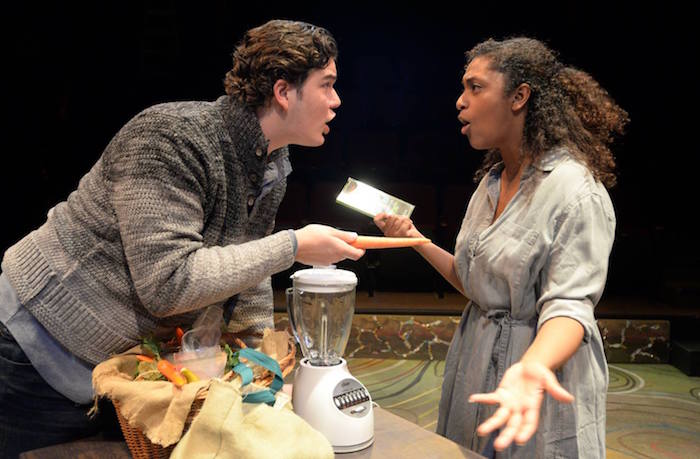
Review: Mouthful by Mary Moody Northen Theatre
by Michael Meigs
Published on November 15, 2016
An evening of ideologically flavored dishes of varied quality and appeal, MOUTHFUL has one deftly captivating piece by Clare Bayley and one appalling rant by Neil LaBute
The collection of six short plays packaged as Mouthful and presented by the Mary Moody Northen Theatre at St. Edward's University in Austin is an odd assortment. Loosely themed to concerns about nutrition and the world food supply, this evening is more a potluck than a smörgåsbord. A potluck meal usually unites the like-minded around a meal that's anything but predetermined, often with dishes of varied quality and appeal, while the classic Scandinavian smörgåsbord presents …
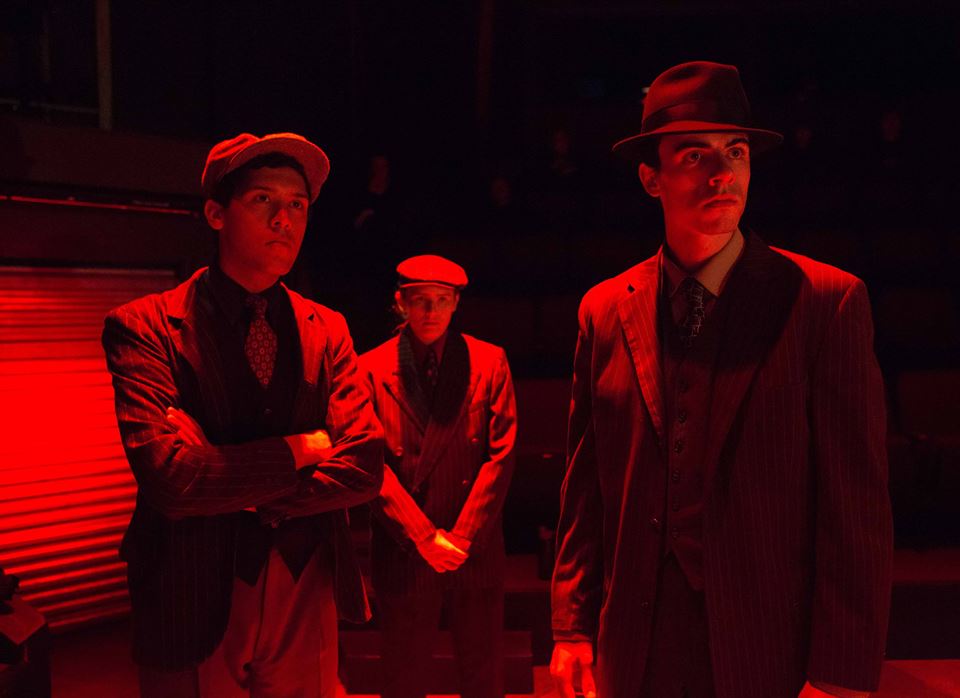
Review: The Resistible Rise of Arturo Ui by Mary Moody Northen Theatre
by Michael Meigs
Published on October 05, 2016
Deprived of Brecht's framework of satirical references to the rise of Adolf Hitler, the plot of this production sways awkwardly with no real point of attachment to our current political drama.
David Long's annual choices for directing at the Mary Moody Northen Theatre usually show a clever quirkiness and the ability to make surprising juxtapositions. He has a string of successes. He takes a classic and gives it modern comic spin (Molière's The Imaginary Invalid and Tartuffe) or he chooses a modern text that tips into absurdist fantasy (Caryl Churchill's Cloud 9 and Love & Information, Overmeyer's On The Verge or The Geography of Longing, Chuck …
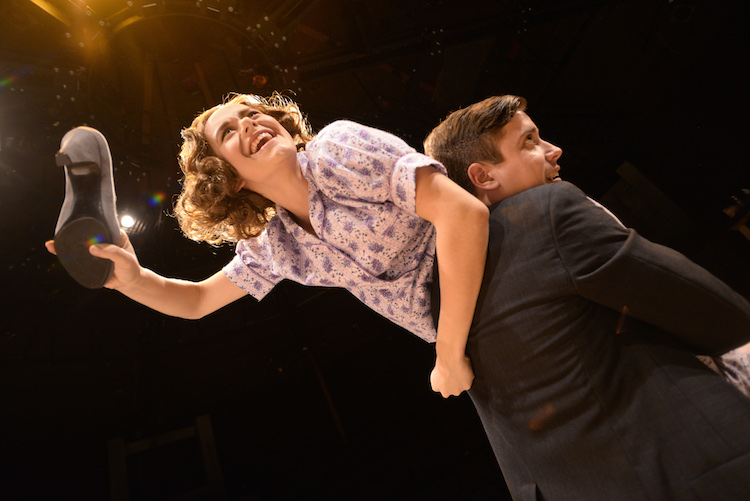
Review: She Loves Me by Mary Moody Northen Theatre
by Michael Meigs
Published on April 12, 2016
Confident romantic leads Cheyenne Barton and Matt Buzonas, comic Maureen Fenninger with her hungry heart of gold and other undergrads have plenty of stage time and fine musical opportunities.
There's a sweetness to She Loves Me, compounded of shop dust, wistfulness and perfume. Miklós László wrote this romantic comedy in 1937, shortly before abandoning his native Budapest for America. His gently humorous character-based tale about shop clerks seeking romance lent itself nicely to the 1941 MGM film The Little Shop Around the Corner with Jimmy Stewart and Margaret Sullavan, recycled in 1949 for the Judy Garland and Van Johnson musical In The Good Old …
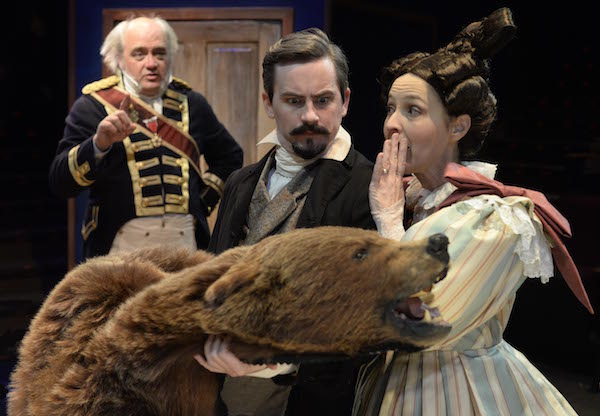
Review: The Government Inspector by Mary Moody Northen Theatre
by Michael Meigs
Published on February 18, 2016
All the town's characters are stereotypes of self-importance, ripe for deflating. In the busy and buoyant action Gogol, Hatcher and director Polgar puncture them deftly and often.
Nikolai Gogol was only 25 when The Government Inspector was presented and published, and he'd already made a reputation for himself as a writer of short stories and the historical romance Taras Bulba, set in the Cossack region of his origins. Gogol had also proved an ignorant disaster when appointed professor of medieval history at the University of St. Petersburg. A romantic fleeing from his modest origins among the petty nobility of the Ukraine, he'd …
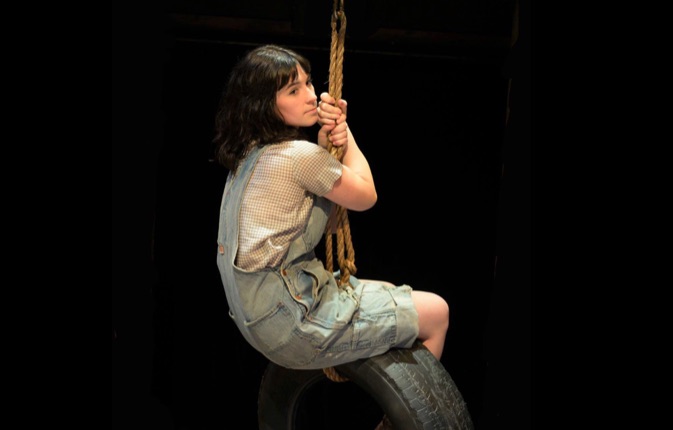
Review: To Kill a Mockingbird by Mary Moody Northen Theatre
by Michael Meigs
Published on November 15, 2015
To Kill A Mockingbird maintains Harper Lee's condemnation of petty, malevolent and racist small-town Alabama while holding out hope for the future.
Harper Lee's To Kill A Mockingbird is a comfortable and familiar story, an immediate success when it was published in 1960. My cousins in a small town in south Alabama were about the same age as Scout, the protagonist. They embraced the story and Harper Lee's sensitive portrait of small town life and the appalling effects of know-nothing racism. It took me a bit longer. First, because I didn't read the novel or see the …
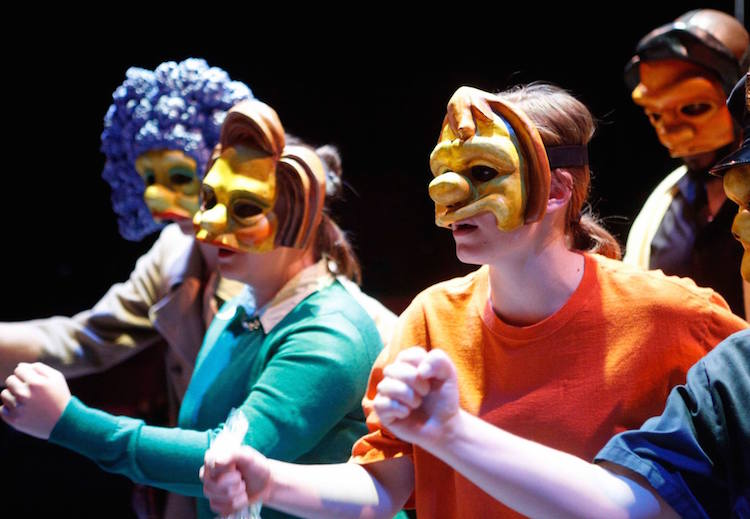
Review: Mr. Burns, A Post-Electric Play by Mary Moody Northen Theatre
by Michael Meigs
Published on October 04, 2015
Washburn's work is a think piece with worthy aims, but it fails to connect with the audience precisely because of its thesis.
American popular imaginings of recent years have been enamoured of dystopian tales of post-industrial collapse. It's not a new trope: Orson Welles' 1939 War of the Worlds hinted at it and Neville Shute's 1959 On the Beach haunted a Western world newly conscious of the H-Bomb. Hollywood has been tearing civilization apart with CGI-FX glee for decades; the first Mad Max movie was in 1979. Cormac McCarthy's 2006 The Road is a stark father-and-son survival …